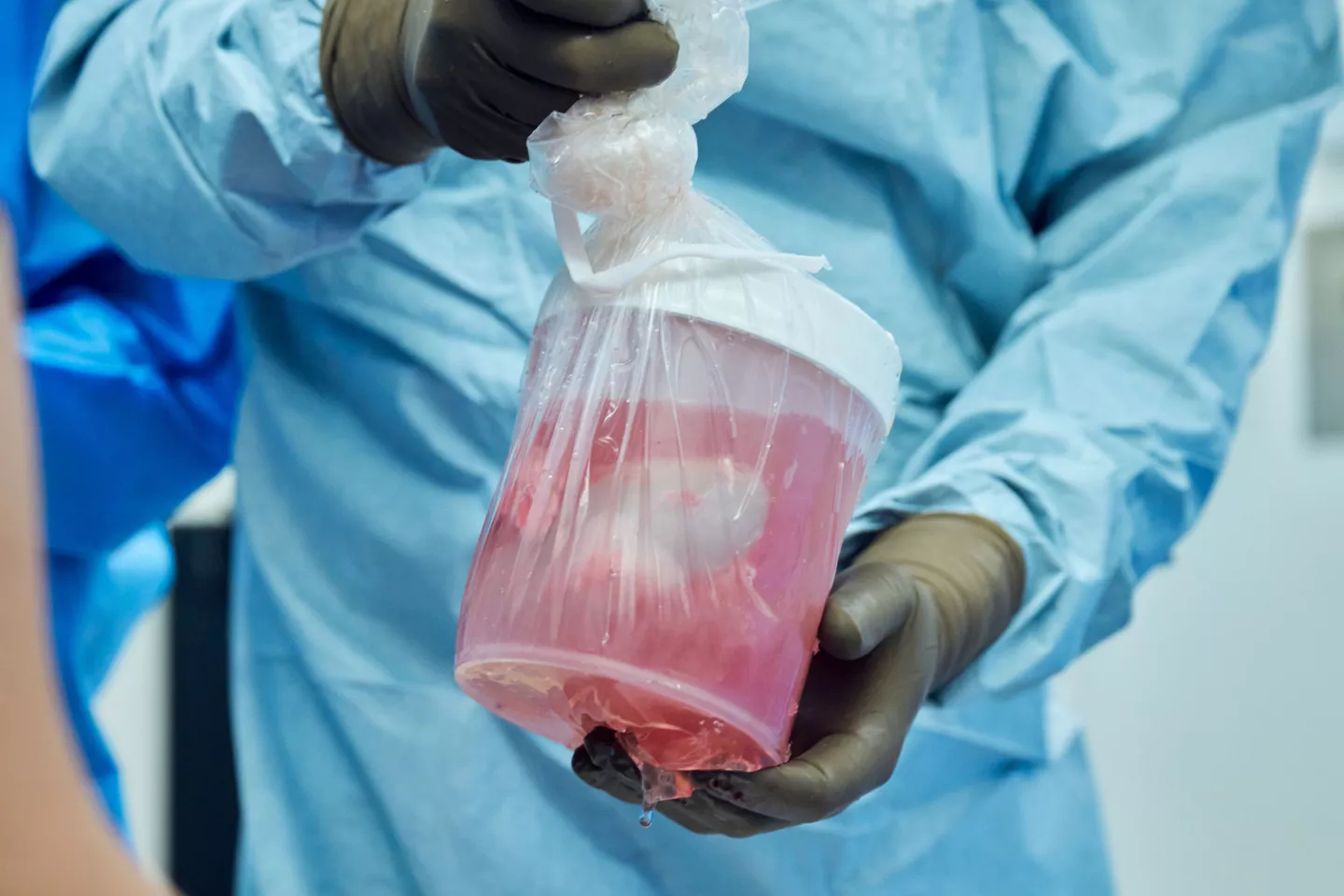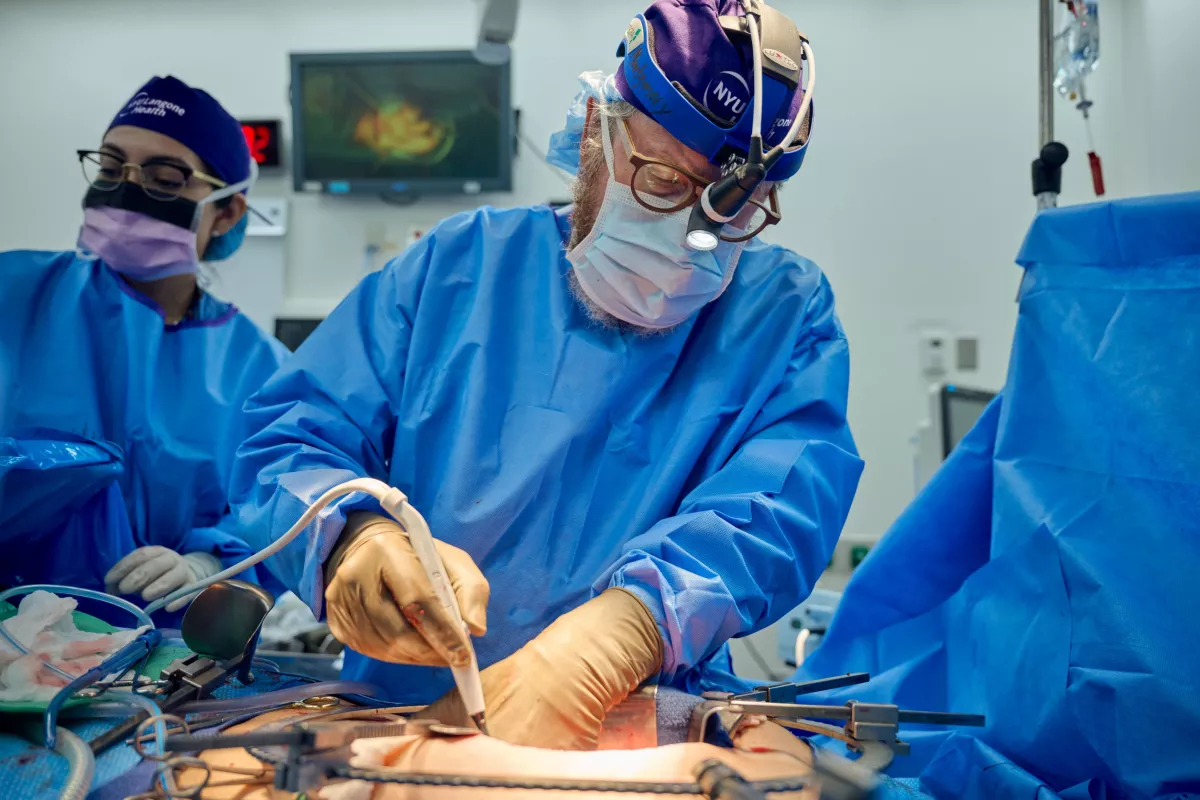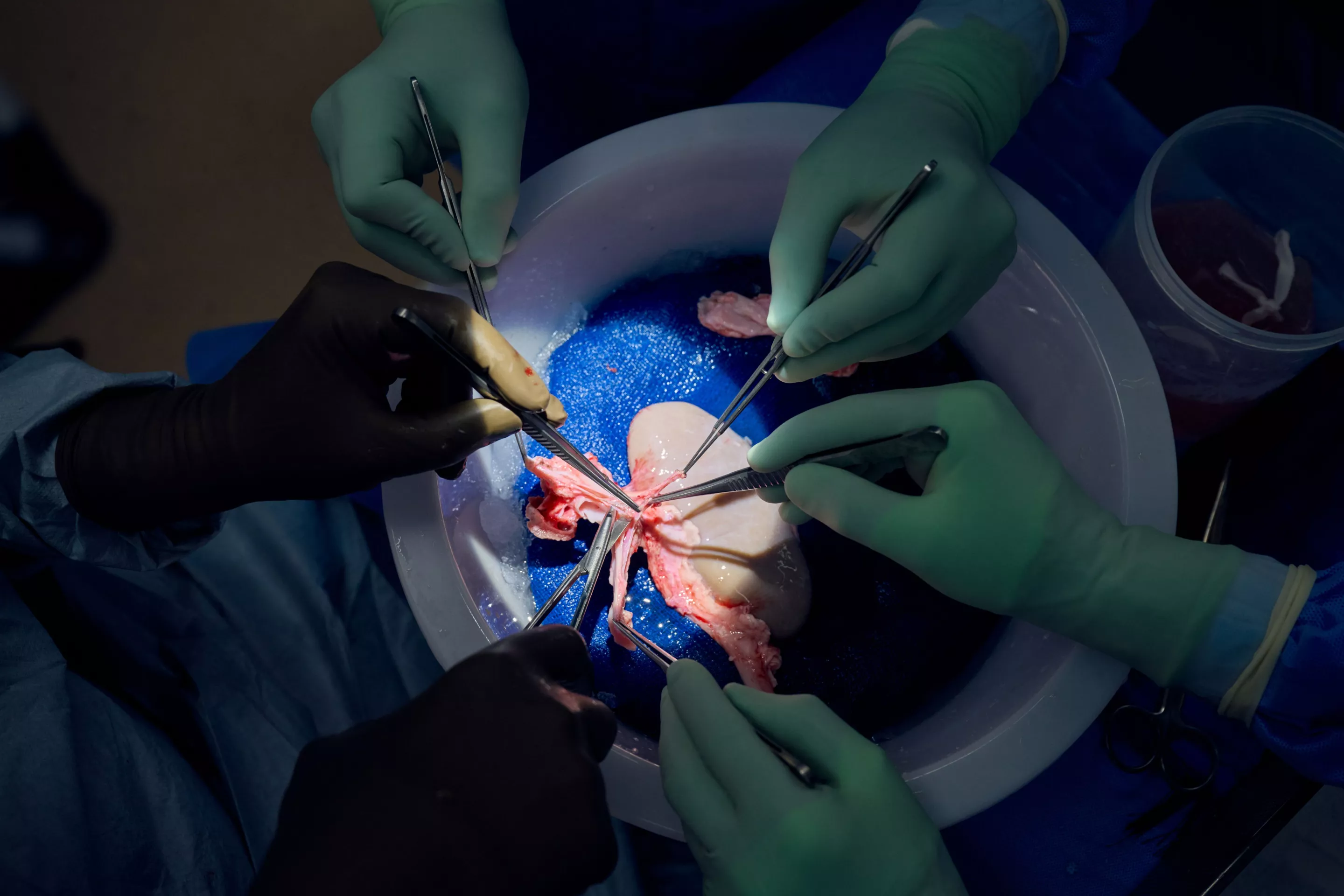No sooner had we covered news of a University of Alabama team having success with genetically edited pig kidneys transplanted into a human patient functioning for a week, we learnt that another team has blown that length of time out of the water. In another encouraging step toward relieving transplant organ shortages, surgeons at NYU Langone Health have kept a genetically engineered pig kidney alive and fully functioning inside a brain-dead patient for over a month for the first time.
Organ transplants are modern surgical miracles that have saved hundreds of thousands of lives while improving the quality of those lives. The problem is that there is a chronic shortage of suitable organs, with supply coming nowhere near to meeting demand. In the United States alone, 26,000 people received new kidneys in 2022, yet there are 808,000 people with end-stage kidney disease and the transplant waiting list tops out at 103,000.
Since there aren't enough human organs to go around, doctors, surgeons, and scientists are looking at alternatives that include artificial organs, ones constructed in a lab from living tissue, and ones from reasonably compatible animals. Pigs are particularly favored because, in many ways, their internal organs are very similar to ours.
One big problem is that pigs have a sugar molecule called alpha-gal that humans do not. What this means is that when a pig kidney, for example, is put into a human body, the recipient's immune system goes into immediate alarm mode in what is called a hyperacute rejection within minutes of the transplanted pig organ being connected to the bloodstream.

The usual way to handle this is by genetically modifying the pig to not produce alpha-gal, with as many as 10 edits of the pig's genetic code. For the current study, the NYU Langone Health team opted for a single knock-out modification combined with standard transplant immunosuppression medications and intensive screening for porcine cytomegalovirus (pCMV) and six other porcine viruses that can cause organ failures.
For obvious ethical reasons, the transplant was performed on a 57-year-old male brain dead patient who had consented to the procedure beforehand and whose own organs were unsuitable for transplantation. The patient's own kidneys were removed and the pig's kidney replaced one. The kidney was further modified by inserting the pig's thymus gland under the outer layer of the organ. The thymus helps the recipient's body recognize the new organ and helps prevent later immune responses.
So far, the kidney has remained alive and healthy for over 32 days while fully functioning, which is a new record. Biopsies and monitoring show the organ working within the optimum range. The GalSafe pig was produced by a subsidiary of United Therapeutics and is approved by the US FDA for both potential medical use and as a food source for people suffering from a meat allergy called alpha-gal syndrome.
The trials are scheduled to continue into September with the permission of the family, the ethics committee, and support from United Therapeutics.
"We think using a pig already deemed safe by the FDA, in combination with what we have found in our xenotransplantation research so far, gets us closer to the clinical trial phase," said Doctor Robert Montgomery, MD, DPhil, the H. Leon Pachter, MD, Professor of Surgery, chair of the Department of Surgery, and director of the NYU Langone Transplant Institute. "We know this has the potential to save thousands of lives, but we want to ensure the utmost safety and care as we move forward."
Source: NYU Langone Health









